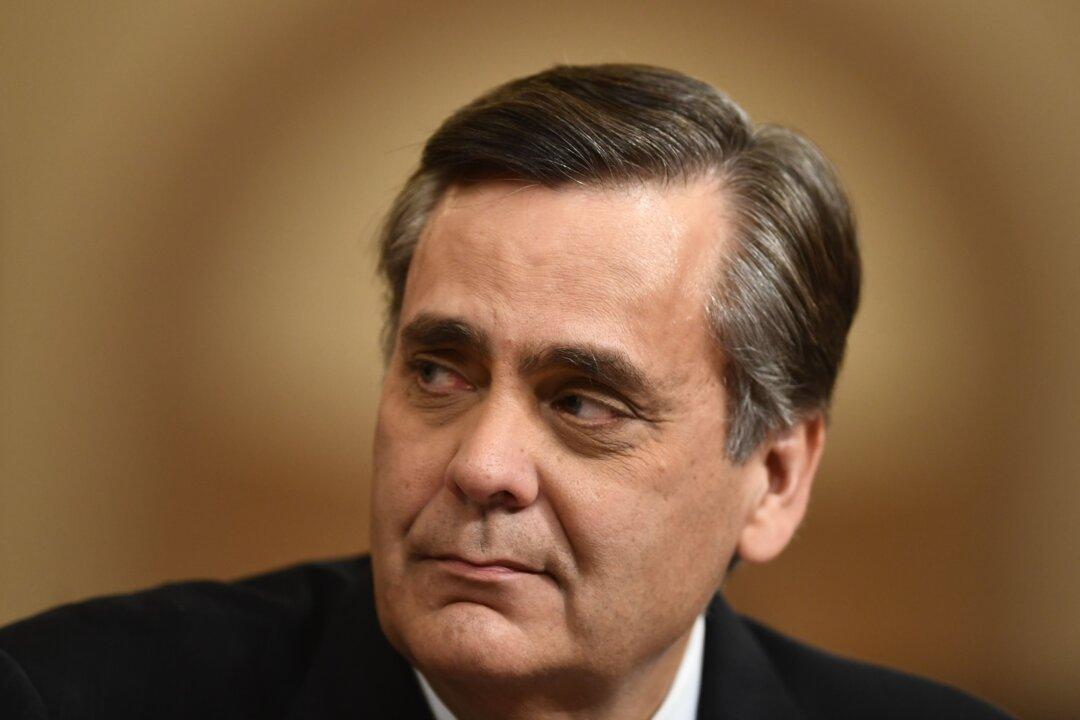Former President Donald Trump could theoretically pardon himself after he was indicted in a federal investigation connected to whether he mishandled classified records, according to George Washington University law professor Jonathan Turley.
Speaking to Fox News, Turley said that for the 2024 election, “Trump could run on pardoning himself. You know, for people that feel that this is biased, that this is part of a pattern.”





